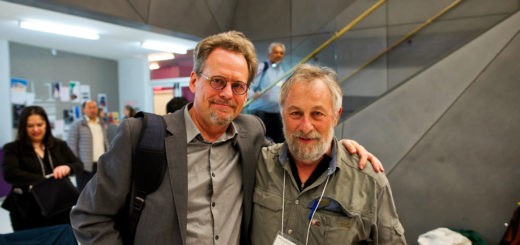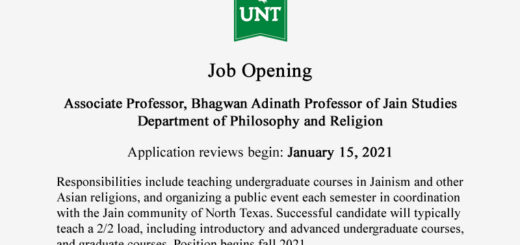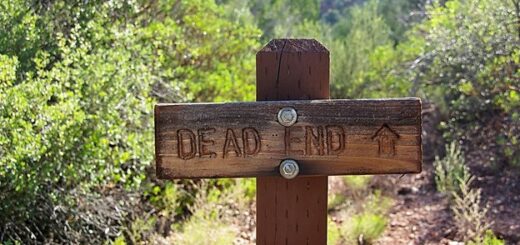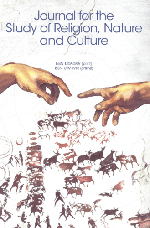New Film Explores Birth of Evangelical Climate Activist: Interview with Barry Lyons
By ">Neall Pogue
Assistant Professor of Instruction, University of Texas, Dallas
Author of The Nature of the Religious Right (Cornell University Press, 2022)
An interview with ISSRNC member Barry Lyons about his film Virginia’s Calling. A trailer and the 30-minute film can be screened free of charge at www.virginiascalling.org. The website describes Virginia’s Calling as offering “a sensitive look into the human effects of climate change on an evangelical family that never thought climate change would affect them.”
I caught up recently with the filmmaker to talk about his work on evangelicals and climate change politics and I’m excited to share the following interview based on that discussion.
Neall Pogue (NP): I want to start out with a little background for our readers. It strikes me that your film is unlike any other climate change film I’ve seen. Talk about some of these differences.
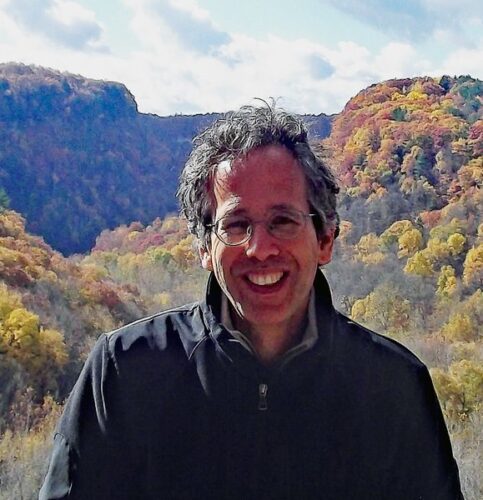
Professor Barry Lyons, Wayne State University
Barry Lyons (BL): Thank you, Neall. I was definitely trying to make a different kind of film, one specifically aimed at politically conservative evangelical Christians. And one that could spark conversations in church groups and Christian college classrooms. I wanted to tell a story of an evangelical Christian grappling with climate change and what that meant for her emotionally and spiritually. What struggles did she have to go through to acknowledge climate change? How did this challenge her faith? How did it deepen her faith?
Conservative Christians are an important audience. They’re the voting group least likely to believe that global warming is a serious problem. But most climate change films never reach them.
It’s easy to see why, if you think about some of the best-known films. Who’s the messenger? A liberal politician like Al Gore. Or Hollywood celebrities and journalists, as in the Years of Living Dangerously series. Well, in the eyes of many conservative Christians, these are people on the opposite side of the culture wars.
A lot of climate change films use appeals that just don’t work with most evangelicals. Polar bears on melting ice floes. Apocalyptic scenarios that invoke secular science and not divine revelation. Indigenous peoples and climate justice.
Many of these films do important, valuable work. I’ve learned a lot from them. But they unwittingly play right into the suspicions of any conservative Christians who might encounter them. Conservative Christians worry that environmentalism is an alternative, pantheistic religion, one that places animals above humans. Secular science often clashes with their Biblical faith. And relating to the climate justice movement requires leaping over some big barriers of ideology and identity.
People won’t think about the climate crisis until you first reach their hearts, and that goes for evangelical Christians as much as anybody. That’s where Virginia and her story come in. Other climate change films don’t have a protagonist like Virginia: a white, evangelical Christian who voted twice for Trump and homeschools her kids. Conservative Christians can identify with her. They can understand and be moved by Virginia because she is one of them.
It’s turned out that other people are also drawn to the film. Moderate evangelicals, even secular and progressive folks, environmentalists trying to understand evangelicals. I think we can all learn from this new kind of climate story.
 NP: How did you come to know Virginia, and what interested you about her story?
NP: How did you come to know Virginia, and what interested you about her story?
BL: I was looking for evangelical Christian climate stories when a colleague introduced me to Virginia. I was immediately impressed – moved to tears, really, by her story of loss, spiritual crisis, and transformation.
Virginia used to think climate change was “just a political thing”—not something she needed to care about. Then hurricane flood waters enter her home in coastal Virginia. Her family is uprooted. They’re on the brink of bankruptcy. And the God she trusted doesn’t seem to care.
I’ve heard plenty of climate change stories, but Virginia’s was the first that’s also a testimony of faith. That’s a classic Christian narrative genre: The believer testifies to the role God has played in her life. In Virginia’s case, it’s a story of how her faith was tested and then renewed—how God “called” her to climate advocacy.
So, there’s this journey of faith, interwoven with an interesting climate change story. Initially, Virginia is just trying to understand why her home flooded. As she’ll tell you, she’s “just a homeschooling mom” and a “mama bear” trying to protect her home and family. So she starts learning about her city’s flood infrastructure and the science of coastal flooding. And she feels called to share what she’s learning with others in her community. She starts pushing city hall to fund flood control and prioritize the needs of families over developers. Two years after her home floods, she receives a citation from the Virginia General Assembly for her citizen advocacy. Through all of this, Virginia’s sense is that God is leading her to a new way to love her neighbors.
Virginia’s story shows that evangelicals have a lot of rich resources in their faith that they can draw on to reflect and act on climate change. They just need to put aside the noise of partisan politics, as Virginia learned to do. My hope is that the film helps evangelical viewers reconnect with those resources. I also hope that it helps non-evangelicals and secular environmentalists engage respectfully with conservative evangelicals and find common ground.
NP: You are an accomplished anthropologist with decades of fieldwork experience in Ecuador. What inspired you to make a film about an American evangelical woman’s experience of climate change?
BL: One of the main goals of anthropology is to help us question our own cultural assumptions. Traditionally, anthropologists do this by showing that people in far-off places view the world very differently. I knew indigenous farmers in Ecuador, evangelical Christians who saw that the weather was becoming more unpredictable and extreme. This has become a real problem for them in trying to make a living! My initial thought was that a film about them might help American evangelicals see that good, faithful Christians can—and should—care about climate change.
I would still like to make that film someday. But American evangelical leaders advised me to start closer to home. It’s not that American evangelicals wouldn’t care about farmers in Ecuador—they donate lots of money to support relief and development work in places like Ecuador. But a story that Americans could identify with more readily would have a better chance of shaking up entrenched assumptions about climate change.
I found that kind of story in Virginia. She’s an American homeschooling mom. She has a down-to-earth sense of humor and a warm smile. She’s open and vulnerable. She’s also very thoughtful and eloquent. All this makes her a relatable and inspirational model.
NP: Were you surprised at any point during the filmmaking about the direction the story took?
BL: There were lots of surprises–enough new twists and subplots for a feature-length film! The biggest surprise really did throw us off track. After her house flooded in 2016, Virginia began working closely with a liberal Democrat, her representative in the Virginia House of Delegates. Both of them had had terrible experiences in the 2016 flood and wanted to protect families from flooding disasters.
They began with a lot of mutual mistrust. But as they worked together, they discovered they had more in common than just a concern with flooding. Their young children played together while the two mothers researched and drafted bills at their kitchen tables. At one point in the filming, Virginia mentioned that the two moms were getting their nails done together! Soon, the two families—liberal Democrats and conservative Republicans—were enjoying family nights in each other’s homes. Meanwhile, the bills they drafted suffered a lot of setbacks before they finally became law in 2021.
We thought this friendship made for a great story, an inspiring example for people on both sides of the partisan divide. But it proved too big a story in itself. We just couldn’t fit any of it into Virginia’s Calling, which was really disappointing.
NP: Where, to your knowledge, has the film been shown, so far, and what kinds of responses has the film received?
BL: The film has been screened in online events and film festivals from Montreal to Buenos Aires, winning several film festival awards. Some of these events have been academic, many of them Christian, and many for general audiences. National evangelical leaders and pastors have described the film as inspiring and deeply moving. A national evangelical organization, A Rocha USA, has held a screening, and the Evangelical Environmental Network will be holding an online screening and training on April 21, 2022. Our plan for this is to prepare participants to bring the film to their home churches and communities.
We have faced big challenges in getting the film to a broader audience of evangelicals. Our initial distribution plans focused on major in-person screening events at evangelical universities, and of course the pandemic threw a wrench into that. Also, many churches these days are already torn by political divisions. Environmental issues are viewed as “liberal” or controversial. This makes pastors hesitate to host a film about climate change.
Still, we expect that as pandemic restrictions fade, we’ll have new opportunities for in-person screening events large and small. And of course, any group can access the film and discussion guide from our website www.virginiascalling.org or email me at to schedule a virtual or in-person event. To the delight of viewers, Virginia graciously participates in many of our events, and we’re always happy to partner with any organization where people are looking for ways to address climate change from a Christian perspective.
NP: In his 2016 Ted Talk, Stanford professor Robb Willer joked that political polarization in the U.S. is so divided that those on one side often dismiss the other as crazy or perhaps as zombies who have no chance of redemption. What do you say to those who have lost hope that the environmental views held by the white conservative evangelical community can or will ever change? How, if at all, did the potential response of different audiences (evangelicals and non-evangelicals) shape the story you wanted to tell?
BL: What do I say to those who have lost hope? Watch the film! I think one thing many viewers find so moving is precisely that Virginia’s story inspires hope. It shows how a conservative white evangelical can become an eloquent advocate for climate care. Virginia’s leadership has influenced some of her conservative, evangelical friends. We think that bringing the film to Christian colleges, churches, and other evangelical community settings can help that happen at a larger scale.
I won’t pretend that I never feel frustration and despair. Still, I see several reasons for hope. First of all, gratitude and awe at God’s creation, and even a sense of responsibility for it, are not at all alien to evangelical Christianity. These stances have deep roots in Christian scripture, theology, and spirituality. Your work and Robin Veldman’s and others’ have shown that many evangelicals did embrace a stewardship ethic not so long ago. And some still do.
Second, there’s a generational shift going on. Older white evangelicals get more media attention, but younger white evangelicals poll as much more concerned about environmental issues and climate change. And research suggests that young evangelicals can sometimes change their parents’ attitudes.
There are certainly strong social pressures in conservative evangelical communities not to believe in climate change or worry about it. But the flip side of this is that there is more “closeted” concern than is readily visible. I’ve participated in online events where evangelical Christians say things like, “I’m so grateful to be able to talk about climate change with other Christians. I can’t talk about it in my church.”
In this kind of situation, change can happen in local communities in a slow, subterranean way, until something precipitates it to come to the surface. Maybe a church youth group asks their elders to address the issue. Maybe a film screening shows that a good, conservative Christian can care about climate change. Maybe a local weather disaster gets people talking. When people realize that there are others in the room who share their views, change can then occur remarkably quickly. The sociologist Damon Centola has shown how this kind of dynamic often underlies the spread of new behaviors and social movements.
As for potential audience responses and how they shaped the story: I don’t think I’ve seen another climate change film that’s centrally about a person’s relationship with God. But that’s the core of evangelical Christian faith! How can environmentalists or filmmakers hope to talk to conservative evangelical Christians if we don’t speak their language, if we don’t understand their worldview, if we don’t present protagonists they can identify with?
To reach evangelicals in their own terms, the story had to be Virginia’s faith journey—how the flood shook her faith, how she found God again, how God helped her change and grow. This is how Virginia told me her story. My job as filmmaker was to make sure that this narrative thread didn’t get buried under information about flood control infrastructure or climate science.
NP: What is the most important thing you think this film offers to those teaching courses on Religion and Ecology, Religion and Nature or similar? Are there any readings or specific activities you would pair it with?
BL: Let me answer with respect to a couple of different types of students. First, students from conservative Christian backgrounds. Even in a public, urban institution like mine in Detroit, some of our students come from evangelical families – I didn’t realize how many until I began to work on this project! Of course, for some of our colleagues, it’s a majority of their students.
Many of these students are deeply anxious about the climate crisis. They’re frustrated that they can’t talk about it with their more conservative parents. They don’t see their pastors doing anything about it. College is a time when they often question their faith, and this is one more reason.
Virginia’s Calling offers them a model for approaching climate change as Christians and even a tool they can use to start those difficult conversations with their elders.
What about secular and progressive students? I’ve found that they often view evangelicals with a lot of anger. They have a hard time seeing the diversity and complexity in evangelical perspectives. You suggested earlier that environmentalists often write off evangelicals as beyond redemption. I think this goes for a lot of students in courses on religion and ecology. Virginia’s Calling can help them humanize evangelicals and empathize with them. They might even come to see the beauty and power in a perspective that views the earth as a gift from the divine.
The film also illustrates an essential humanistic point about the importance of the particular. Climate change is a global phenomenon, and it’s all too easy to take our own experience and assume it’s universal. In the same way, evangelical Christianity is a global phenomenon. It’s easy to assume that evangelical theology dictates a single response to climate change.
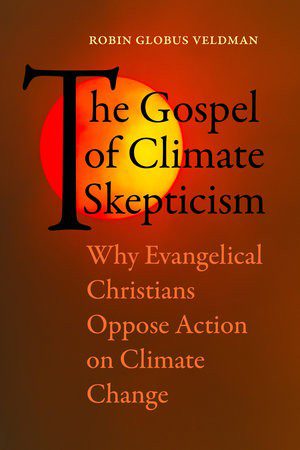 But people always experience climate change within particular contexts. For Virginia, this included a conservative “God and Country” American Christianity. Climate change affected her through coastal flooding and the local politics of flood control infrastructure. Her response was intertwined with her own faith journey.
But people always experience climate change within particular contexts. For Virginia, this included a conservative “God and Country” American Christianity. Climate change affected her through coastal flooding and the local politics of flood control infrastructure. Her response was intertwined with her own faith journey.
The lesson: There’s no one-size-fits-all approach to climate communication. Nor is there just one evangelical interpretation.
I have sometimes paired Virginia’s Calling with a couple of chapters from Robin Veldman’s Gospel of Climate Skepticism. Robin’s work shows how American evangelicals feel they’re under assault and how this drives climate skepticism. This underlines how important it is to approach evangelicals with respect and empathy.
I’m also eager to see your own forthcoming book–maybe I’ll want to use it in conjunction with the film! I understand that you analyze the evangelical environmental stewardship ethic and explore why so many American evangelicals discarded that ethic in recent decades. It’s an ethic that Virginia and others are now reclaiming.
NP: Is there anything else you think scholars of religion and nature/ecology should know about your film?
BL: This might not sound like a very “scholarly” thing to emphasize, but in Virginia’s work on flooding and climate change, I think the most important thing that she draws from her religious faith is love. Loving other people and loving God are central to her understanding of what it means to be a Christian.
This drives her work as a community educator and advocate. It sustains her in the face of setbacks. It helps her engage respectfully with people of all sorts. In these days of bitter partisan divides and demonization—sometimes driven by religion—the film is a good reminder that religion does not have to be so divisive. And as scholars and teachers, we don’t have to share Virginia’s faith to appreciate the gifts of love and hope that she brings.
Barry Lyons Bio
After living for two years in a village in the Ecuadorian Andes as a Peace Corps volunteer in the 1980s, Barry Lyons returned to Ecuador to study religion and social change as a sociocultural anthropologist. Over the last six years, he has turned his focus to evangelical Christians and climate change in Ecuador and the United States. Much of his work is driven by a passion for telling human stories that can spark empathy and reflection. Dr. Lyons teaches at Wayne State University in Detroit.

